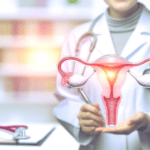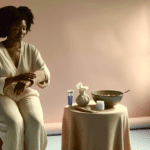By age 60, about 1 in 3 women in the U.S. will have had a hysterectomy. A hysterectomy is a surgical procedure that removes a woman’s uterus. A partial hysterectomy removes just the uterus, leaving the cervix intact. A total hysterectomy removes both the uterus and the cervix. The astonishing thing is that 20% to 40% of these surgeries may not be needed. There are many reasons why women absolutely need the procedure – and a hysterectomy may be the only choice if a woman has cancer of the uterus, ovary, cervix, or endometrium. But most hysterectomies are performed for non-cancerous conditions – such as fibroids, endometriosis, and uterine prolapse. A hysterectomy is deemed as the most unnecessary surgery that women are having.
With this knowledge, is having a hysterectomy necessary for women?
It is important to learn about the possible alternatives. The decision to have a hysterectomy is never an easy one, but if your gynecologic issues are not interfering with your daily life and you can wait for them to resolve with lifestyle management and natural techniques, a woman should not undergo surgery to remove her uterus.
The uterus is not just for making babies
Scientific research performed in 2018 discovered that there is a link between the uterus and the brain, and that undergoing a hysterectomy has negative effects on cognitive functions. This is contrary to what Medical textbooks state: ‘the uterus is a quiescent, and to a large degree, useless organ’ and ‘the sole function of the uterus is to accommodate and support a fetus’.
Fibroids and endometriosis oftentimes disappear when menopause is reached
During menopause, hormonal fluctuations lead to increased levels of estrogen and can cause the development of fibroids and endometriosis in many women (studies show between 30% and 60%). What many women don’t know is that these fibroids and endometriosis will resolve after menopause, when her hormones come back to balance.
Hysterectomy is a major surgery with potential risks
Making the decision to have a hysterectomy should never be taken lightly. It not only closes the door to childbirth, it has other potential repercussions. A woman is putting herself at many risks that come with having any major surgery, and she could suffer from complications. Potential risks are infection, excessive bleeding, blood clots, and adverse reaction to anesthesia. This surgery could also damage the urinary tract, bladder, rectum, or other pelvic structures during the process, which would require further surgical repair.
Instant Menopause Symptoms
If a woman has a hysterectomy before menopause and she keeps her ovaries, she will experience menopause at a younger than average age.
If a woman is premenopausal, removing her ovaries along with a hysterectomy will start menopause immediately. Removal of the ovaries is called an oophorectomy. Unless a woman is over 65 or has underlying health conditions such as cancer or a genetic risk, it is much better for a woman to keep her ovaries. But this is not always the case.
In both cases, this will further contribute to the development of many unpleasant symptoms of menopause such as hot flashes, mood swings, vaginal dryness, and disturbed sleep.
Negative impact on sexual pleasure
The sexual side effects associated with having a hysterectomy should also be considered. Everyone heals differently and it is normal for a woman to experience some common side effects after surgery that may effect her sex life and pleasure. Due to recovery time, surgical menopause, and the emotional aftermath of a hysterectomy, many women experience loss of libido and painful sex after this major surgery. Some women have even reported a reduction in sensation inside the vagina during intercourse. In some cases, women may experience more sexual pleasure after a hysterectomy. This can be from relief of a chronic pain or heavy bleeding that was caused by a uterine problem. However, a woman’s feelings about sexual pleasure after a hysterectomy will vary depending on the reason for surgery, her personal situation, and whether surgery has induced menopause.

Goodbye uterus, hello grief
Healthy reproductive organs are central to a female’s womanhood beginning with her first period at puberty, through pregnancy and childbirth, and ending with menopause. Oftentimes women who have a hysterectomy are provoking emotional distress and depression. Since a woman’s body is changing significantly in many ways after a hysterectomy, the surgery can take an emotional toll on every woman.
The uterus is a crucial organ for pregnancy. Removing it means that a woman won’t be able to get pregnant, which can be a hard adjustment for some. A woman will also stop menstruating after having a hysterectomy. For some, this is a huge relief. But even if a woman is feeling relieved, she can still experience a sense of loss. Pregnancy and menstruation are crucial aspects of femininity. Losing the capacity for both in a single procedure can be a lot to process for some women. Even if a woman is excited about the prospect of not having to worry about pregnancy or menstruation, conflicting feelings can come up after the procedure.
Take an alternative route
There are other options that women should consider instead of removing their uterus. They depend on why hysterectomy is being suggested. If your gynaecological issues are not interfering with your daily life and you can wait for them to resolve, a woman should definitely take the natural alternative route. Here are some alternative techniques to consider (table 1).
| Condition | First treatment to consider | Second treatment | Third treatment |
|---|---|---|---|
| Heavy bleeding from fibroids | Lifestyle management or low dose hormonal pill | For women who can’t take hormones, a drug that blocks progesterone receptors | Less invasive procedures such as uterine fibroid embolization, endometrial ablation or removal via scope (myomectomy) |
| Endometriosis | Hormonal treatment | Endometrial ablation | |
| Pelvic pain | Exercise with a pelvic floor specialist | Mild over the counter pain medication |
If a woman requires a hysterectomy, she should discuss with her surgeon the three approaches – laparoscopic, open abdominal, and vaginal (table 2).
| Removal of: | Uterus | Cervix | Upper Part of Vagina |
| Partial | ? | ||
| Total | ? | ? | |
| Radical | ? | ? | ? |

It is important to discover her surgeon’s comfort with each approach and the risks. Discuss the ovaries and understand the risks and benefits of removal versus leaving them in. A second opinion is a good idea, particularly whenever surgery that cannot be reversed is recommended. And being an informed and educated patient can help many women to avoid unnecessary surgery, and thus, may not be essential to surrender to a hysterectomy.
References:
Why hysterectomies are unnecessary
Search for North American menopause practitioners
Medical literature overview
Pellicer, Antonio, “Overview of Current Trends in Hysterectomy,” Expert Rev of Obstet Gynecol. 2009;4(6):673-685.
Contributors:
Chia Chia Sun is CEO of Damiva, a women’s health company that develops and sells 100% natural feminine moisturizers, including a vaginal moisturizer, Mae and a labial skin cream, Cleo.
Dr. Rardi van Heest is a General Surgeon at William Osler Health Services. She is a Performance Improvement Expert and specializes in Breast Surgery.
Perri van Rossem is a yoga therapist for whom pelvic floor health is a specialty and personal passion. After 3 vaginal deliveries of children all over 10 lbs, she embarked on an in depth study and practice, and discovered how to rehabilitate her own muscles and restore structural support. For over 10 years she has been guiding her students to discover their journey toward healing and well-being. www.livingstudios.ca.








